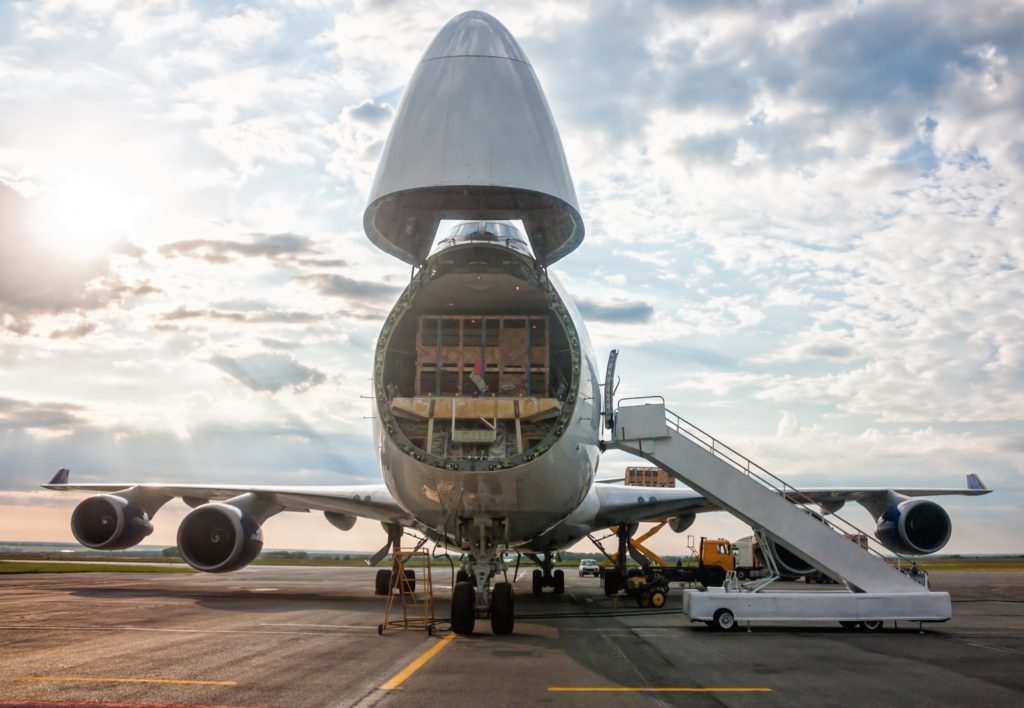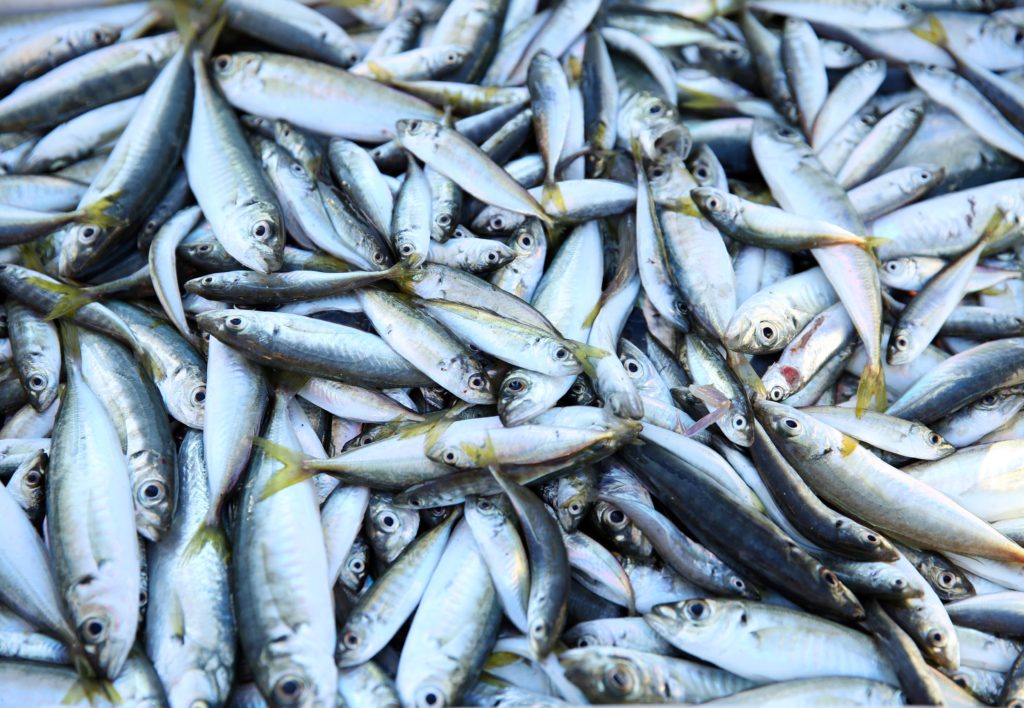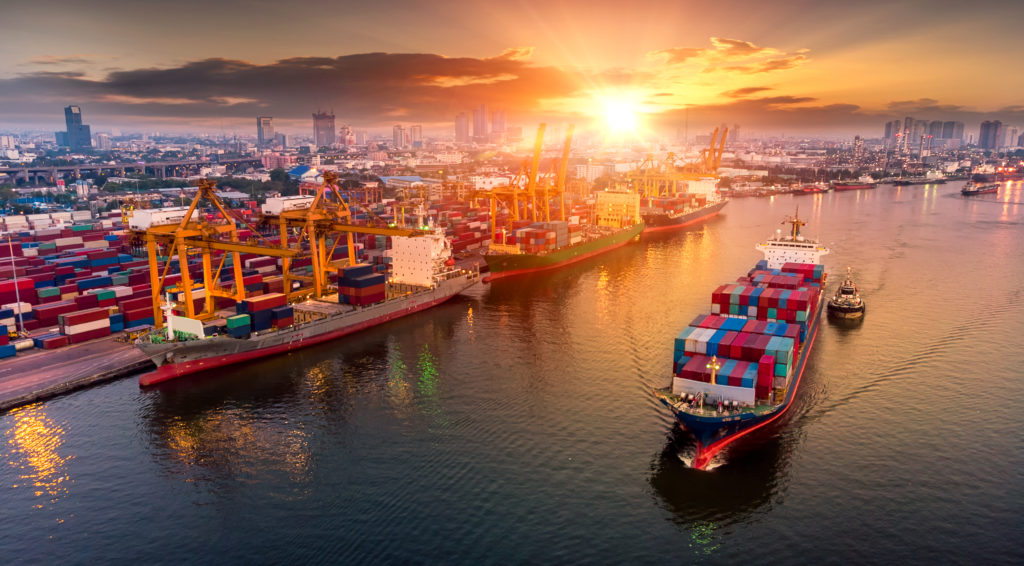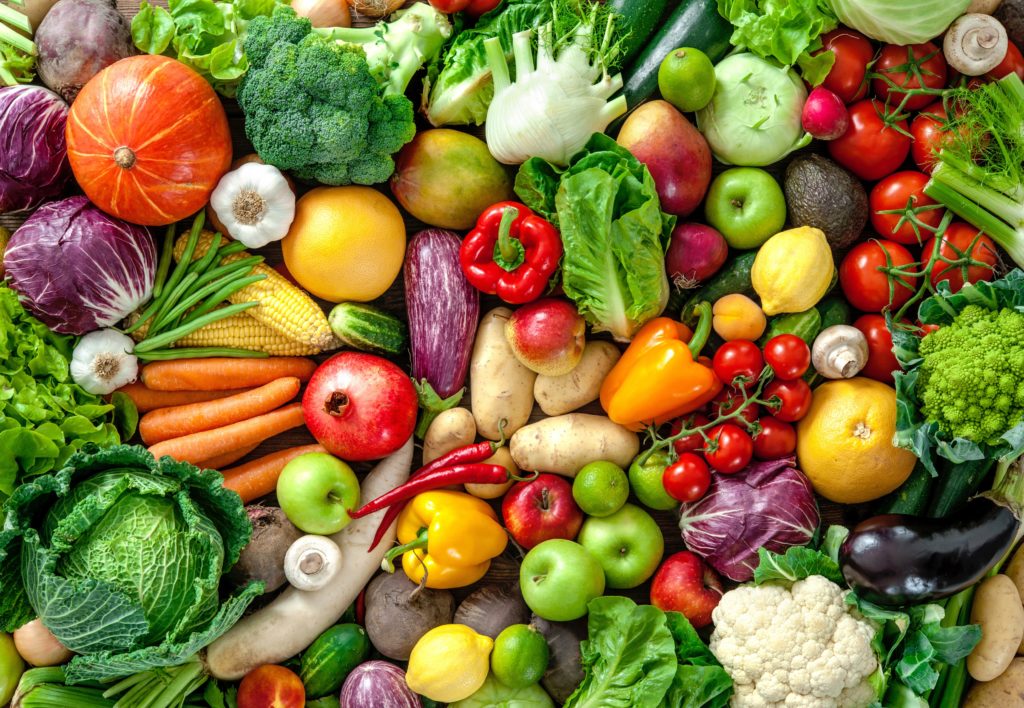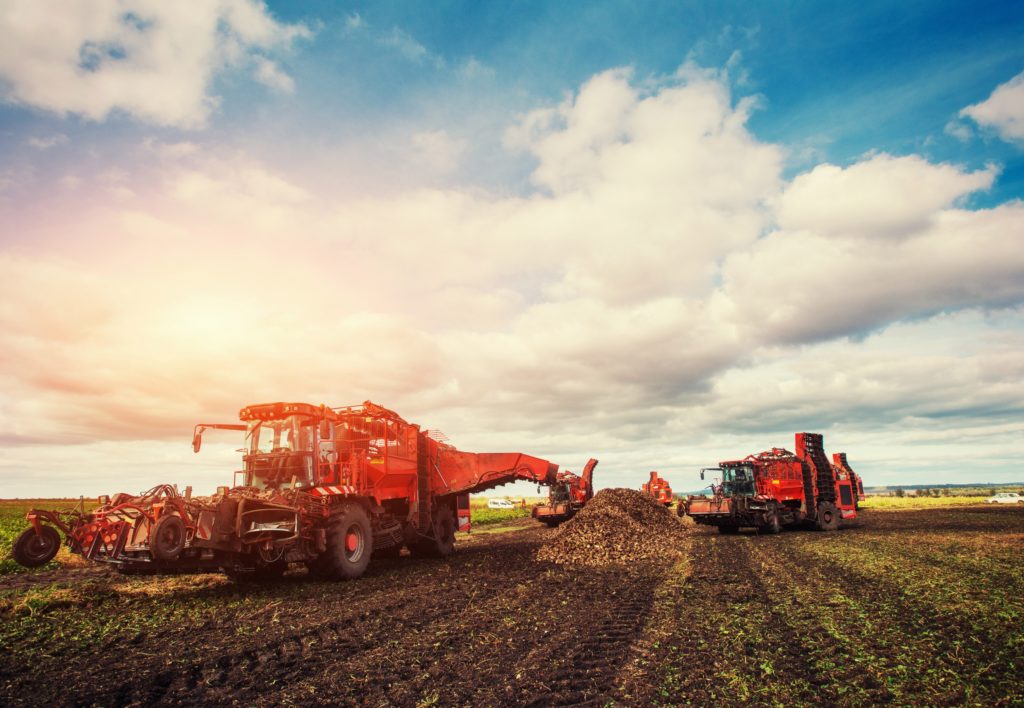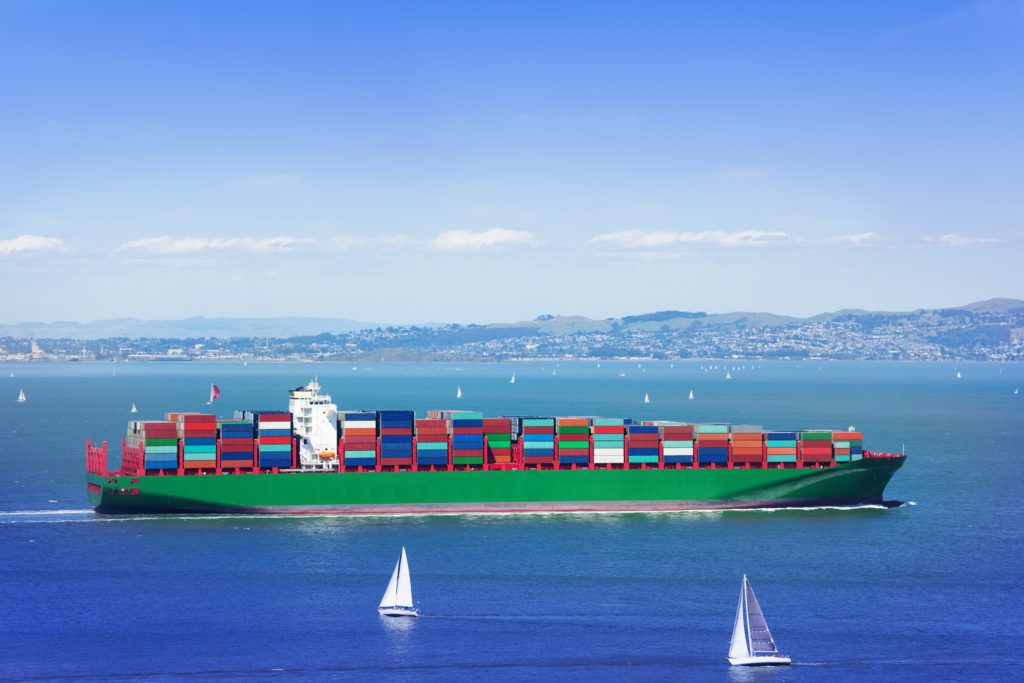Customs Ruling Country of Origin Food Products Case 01
Country of Origin – Food Products
Case Study 1: Country of Origin of Frozen Precooked Tuna Loins
The food product under consideration is “Frozen Precooked Tuna Loins.” Albacore tuna (Thunnus alalunga) is caught in Thailand from which the head, tail, fins, skin and guts will be removed. The fish is precooked by steaming, processed into loins then vacuum-sealed in bags with a net weight of 6.8 kilogram and frozen.
The finished product was initially exported to the United States; however, it has been exported to Ecuador where the product was defrosted then repackaged into retort pouches with a net weight of 2.6 ounces and frozen. The “Frozen Precooked Tuna Loins” will be imported to the United States for retail sale to supermarkets.
Country of Origin and Substantial Transformation Standard
The “country of origin” is defined as “the country of manufacture, production, or growth of any article of foreign origin entering the United States. Further work or material added to an article in another country must effect a substantial transformation in order to render such other country the 'country of origin' within the meaning of this part.
The courts have held that a substantial transformation occurs when an article emerges from a process with a new name, character or use different from that possessed by the article prior to processing (United States v. Gibson-Thomsen Co., Inc. (1940)).
However, if the manufacturing or combining process is merely a minor one that leaves the identity of the article intact, a substantial transformation has not occurred (Uniroyal, Inc. v. United States (1982)).
In-Depth Coverage: Country of Origin
- Country of Origin of Imported Merchandise
- Customs Ruling: Country of Origin
- Country of Origin: Food Products
- Country of Origin: Chemical and Pharmaceutical Products
- Country of Origin & Country of Manufacture: CBP vs. FDA
- Country of Origin: Substantial Transformation or Country of Assembly Test
- Country of Origin and Free Trade Agreement
- Country of Origin and Section 301
In Koru North America v. United States (CIT 1988), the court considered whether the processing of headed and gutted fish in South Korea by thawing, skinning, boning, trimming, freezing, and packaging as fillets constituted a substantial transformation. The court concluded that the processing performed in South Korea into “quick- frozen” fillets substantially transformed the headed fish because there was a change in name and character.
The court noted that while the fish arrived in South Korea with the look of a whole fish, when they left they no longer possessed the essential shape of a fish. The fillets were considered discrete commercial goods and had a different tariff classification.
In the case under consideration, Albacore tuna, which is harvested in Thailand, is stripped of the head, tail, fins, skin and guts. The fish is precooked by steaming, processed into loins, vacuum-sealed in 6.8 kilogram bags then frozen. The finished product was initially shipped to the United States before it was exported to Ecuador where it was defrosted and repackaged into 2.6-ounce retort pouches then frozen. The finished product will subsequently be shipped to the United States for retail sale.
In this case, CBP determines that the tuna has not been substantially transformed due to the processing in Ecuador, and that therefore the country of origin of the “Frozen Precooked Tuna Loins,” is Thailand.
In-Depth Coverage: Marketing and Advertising Compliance
- Federal Trade Commission (FTC) Advertising Rules
- Made in USA Standard
- FTC Regulation on Environmental Claims
- Adverting and Marketing on the Internet
- Label Claims for Conventional Foods and Dietary Supplements
- Dietary Supplement Advertising: What is FTC's Truth-in-Advertising Law?
- USDA Country of Origin Labeling (COOL)
- FTC Rules & Regulations on Food Advertisement
Country of Origin or Country of Manufacture – CBP and FDA
The country of origin of the imported products must be report to both CBP and the FDA. Unfortunately, the country of origin for the purpose of report to CBP and FDA can be different. This discrepancy is because the FDA generally determines country of origin based on the last country of manufacture, while CBP generally considers the country of origin to be the last country where processing resulted in a substantial transformation.
In this case under consideration, the country of origin for the purpose of CBP report is Thailand, but Ecuador is the country of the last manufacture and thus may need to be report to FDA. Moreover, FDA requires any food product contains a label identifying the name and place of the manufacturer, packer, or distributor.
Customs Ruling―NY N306414: The country of origin of Frozen Precooked Tuna Loins (Oct 23, 2019)
In-Depth Coverage: Importing Food Products
- What is FDA Food Safety Modernization Act (FSMA)?
- Prior Notice of Imported Foods
- FDA Food Facility Registration
- Risk-Based Preventive Controls for Human Food
- Risk-Based Preventive Control for Animal Food
- Protect Food against Intentional Adulteration
- What is Foreign Supplier Verification Program (FSVP)?
- What is FSMA Produce Safety Rule?
Case 2: Cooking Rice Does Not Result in a Substantial Transformation
The product under consideration is identified as a pre-cooked long grain rice. The rice is grown in Vietnam and shipped to China for washing, boiling and packaging prior to importation into the United States. What is the country of origin of the pre-cooked rice?
Country of Origin – Substantial Transformation Standard
Customs Regulations 19 CFR Section 134.1(b) defines the country of origin as the country of manufacture, production or growth of any article of foreign origin entering the U.S. Further work or material added to an article in another country must effect a substantial transformation in order to render such country the country of origin within the meaning of Part 134 of the regulations.
A substantial transformation occurs when a new and different article of commerce emerges from a process with a new name, character or use different from that possessed by the article prior to processing. However, a substantial transformation will not result from a minor manufacturing or combining process that leaves the identity of the article intact.
The essence of the substantial transformation rule is that whether operations and/or materials added to products in the country of exportation are of such a substantial nature so as to justify the conclusion that the resulting product is a manufacture of that country.
Thermal processing or cooking
In HQ 967925 (2006), CBP determined that thermal processing or cooking did not result in the “Wild Rice” product with a different name, character, or use. The essential character of the “Wild Rice” product was retained. The wild rice ingredient of U.S. origin had not undergone a substantial transformation.
In this case under consideration, the washing and boiling of the long grain rice in China do not constitute a substantial transformation. The country of origin of the pre-cooked long grain rice will be Vietnam. Therefore, the long grain rice is excluded from the Section 301 additional rate of duty as it is not a product of China.
In-Depth Coverage: Importing USDA-Regulated Products
- Importing USDA-Regulated Food Products
- Import Regulation by USDA Agricultural Marketing Service (AMS)
- Food Products – FDA or USDA Regulated
- Country of Origin Labeling
- Importing Animals, Animal Products, and Biologics into the US
- Importing Meat, Poultry, and Egg Products into the US
- Labeling and Marking of Imported Meat, Poultry, and Egg Products
- USDA National Organic Program (NOP)
- Agricultural Safeguards and USDA Licensing
Additional Requirements for Food Prodcuts
Country of origin and country of manufacture: CBP vs. FDA
When FDA regulated products are imported into the United States, information is required to be reported to the CBP and the FDA. FDA regulated products include, but not limited to, foods, beverages, dietary supplements, drugs, medical devices, radiation-emitting electronic devices, and cosmetics. The country of origin of the imported products must be reported to both CBP and the FDA. Unfortunately, the country of origin for the purpose of the report to CBP and FDA can be different. This disagreement is because the FDA generally determines the country of origin based on the last country of manufacture, while CBP considers the country of origin to be the last country where processing resulted in a substantial transformation. If the production operations occur in more than one country, customs law requires the importer of record to determine a single country of origin based on where the product underwent last substantial transformation.
In this case under consideration, the country of origin for the purpose of the CBP report is Vietnam, but China is the country of the last manufacture and thus may need to be reported to FDA. Moreover, the FDA requires any food product contains a label identifying the name and place of the manufacturer, packer, or distributor.
The Bioterrorism Act – Food Establishment Registration and Prior Notice
The Public Health Security and Bioterrorism Preparedness and Response Act of 2002 (the Bioterrorism Act) requires that food facilities register with FDA and FDA must be given advance notice on shipments of imported food.
The FDA Food Safety Modernization Act (FSMA)
The FDA Food Safety Modernization Act (FSMA) require that facilities engaged in manufacturing, processing, packing, or holding food for consumption in the United States submit additional registration information to FDA, including an assurance that FDA will be permitted to inspect the facility at the times and in the manner permitted by the Federal Food, Drug, and Cosmetic Act (FD&C Act). It also requires food facilities required to register with FDA to renew such registrations every other year, and provides FDA with the authority to suspend the registration of a food facility in certain circumstances. Specifically, if FDA determines that food manufactured, processed, packed, received, or held by a registered food facility has a reasonable probability of causing serious adverse health consequences or death to humans or animals, FDA may by order suspend the registration of a facility that: Created, caused, or was otherwise responsible for such reasonable probability; or Knew of, or had reason to know of, such reasonable probability; and packed, received, or held such food.
In-Depth Coverage: Importing Medical Device
FSMA Final Rule for Preventive Controls for Human and Animal Food
Generally, domestic and foreign food facilities that are required to register with section 415 of the Food, Drug, & Cosmetic Act must comply with the requirements for risk-based preventive controls mandated by the FDA Food Safety Modernization Act (FSMA) as well as the modernized Current Good Manufacturing Practices (CGMPs) of this rule (unless an exemption applies). This rule requires food facilities to have a food safety plan in place that includes an analysis of hazards and risk-based preventive controls to minimize or prevent the identified hazards. The written food safety plan required of food facilities must be prepared, or its preparation overseen, by one or more preventive controls qualified individuals. And the preventive controls qualified individual is charged with overseeing the validation that preventive controls are capable of controlling identified hazards and the records review.
Foreign Supplier Verification Programs (FSVP)
The FDA FSMA rule on Foreign Supplier Verification Programs (FSVP) for Importers of Food for Humans and Animals requires that FSVP importers perform certain risk-based activities to verify that food imported into the United States has been produced in a manner that meets applicable U.S. safety standards.
The FSVP importer is the U.S. owner or consignee of the food offered for import (i.e., owns the food, has purchased it, or has agreed in writing to purchase it at the time of U.S. entry). The key is that there be an FSVP importer in the United States who takes responsibility for meeting the FSVP requirements. FSVP Importers subject to the FSVP regulation must ensure that their FSVP is developed and applied by a “qualified individual”.
Intention Adulteration Rule (IA Rule) – Food Defense Plan
As part of the FDA Food Safety Modernization Act (FSMA), the FDA issued on May 27, 2016 a final rule to require domestic and foreign food facilities, with some exceptions, to address hazards that may be introduced with the intention to cause wide-scale harm to public health. These food facilities are required to identify significant vulnerabilities and take steps to minimize or prevent them. The rule does this by requiring that certain facilities develop and implement a food defense plan. It applies both to domestic facilities and foreign facilities that export food to the United States.
The IA rule requires special qualifications for individuals who do or oversee the following activities (food defense qualified individual), which require the most food defense expertise: preparation of the FDP; conduct of a vulnerability assessment; identification and explanation of mitigation strategies; and performance of the reanalysis.
Customs Ruling―NY N306050: The tariff classification, Country of Origin, and Section 301 determination of pre-cooked long grain rice from Vietnam (September 27, 2019)
In-Depth Coverage: Customs Valuation
In-Depth Coverage: Trade Remedies
FDA-Regulated Products and Import Requirements
- What is Food Safety Modernization Act (FSMA)?
- Prior Notice of Imported Foods
- Food Facility Registration
- Risk-Based Preventive Controls for Human Food
- Risk-Based Preventive Control for Animal Food
- Standards for the Growing, Harvesting, Packing, and Holding of Produce for Human Consumption
- What is Foreign Supplier Verification Program (FSVP)?
- Protect Food against Intentional Adulteration
- FDA Regulated Product in Foreign Trade Zone (FTZ)
- Entry Review Process for FDA Regulated Products
- Country of Origin VS Country of Manufacture
- Foods Regulated by FDA or USDA: What is the Difference?
- Label and Labeling Claims for Conventional Food and Dietary Supplements
- What is USDA Country of Origin Labeling (COOL)?
- Import for Export of FDA Regulated Products
- FDA Regulated Products in Personal Baggage or Sending by Mail or Courier
- International Mail Facility (IMF) and FDA Regulation
- Importing Biological Product Regulated by CBER
- Importing Cosmetics and Voluntary Cosmetic Registration Program (VCRP)
- Importing Drugs into the U.S.
- Importing OTC Drugs into the U.S.
- Importing Veterinary Drugs into the U.S.
- Importing Tobacco Products into the U.S.
- Importing Medical Devices into the U.S
- Importing Food Products into he U.S.
- Importing Radiation-Emitting Products into the U.S.
Guidance on customs & logistics solution for traditional and e-commerce importers and exporters
Importer Security Filing (ISF)
An ISF is required when cargo (ocean only) laden on vessel at a foreign port is destined for shipment to the U.S. Under ISF rule, some importing information and details regarding cargo must be transmitted to the CBP at least 24 hours before goods are loaded onto the vessel, or at least 24 hours prior to the departure to the U.S.
Freight Forwarding
Looking for a freight forwarding partner? To move your cargo from its current location through customs to its final destination we will partner with you to find the best way for your business. Whatever your transportation, logistics or customs clearance needs, we will do our best to customize a solution for your needs.
Customs Clearance
All goods imported into the customs territory of the U.S. are required to be declared to CBP. Our customs broker will help you stay in compliance with customs laws and regulations and clear your goods quickly and efficiently with our electronic Automated Commercial Environment (ACE) and Automated Broker Interface (ABI) Single Window System.
Warehousing & Distribution
Our warehouse facility offers great potential for serving as a regional hub with over 145,000 SF storage capacity close to Los Angeles Airport & Los Angeles/Long Beach Sea port. With our extensive experience in freight services, your import/export cargo will be handled quickly and effectively.
Section 321 Entry
Section 321 entry allows importing free of duty and tax for shipments imported by one person on one day having a fair retail value in the country of shipment not more than $800. We provide our resident and non-resident clients with dedicated ACE eManifest solutions for Section 321 entry of all modes of transportation.
Non-resident Importer Program
If you want to sell your products in U.S. marketplaces, but you are a business owner located outside of the U.S. and do not have an entity or presence in the U.S., you need to be established as a Foreign Importer of Record before your products can be imported into the U.S. We can help you.
E-Commerce
The Internet has made it easy to find and purchase items from almost anywhere in the world. Our e-commerce experts will help you find the right solution for your international transportation, customs clearance, and delivery to your final destination. We also provide value-added repackaging, warehousing and distribution services.
Customs Clearance and Import Requirements
- Entry of Imported Merchandise
- What is Section 321 Entry?
- What is Automated Commercial Environment (ACE)
- What is an Automated Broker Interface (ABI)?
- Who is Ultimate Consignee?
- What is Non-Resident Importer Program?
- Country of Origin of Imported Merchandise
- What is the Country of Assembly?
- What is the FDA's Country of Manufacture?
- Marking of Country of Origin on U.S. Imports
- What is Customs Bond?
- Reconciliation Prototype and Bond Rider
- Who Needs a Customs Broker?
- What is Customs Ruling Program?
- Classification of Imported Goods
- How is imported merchandise appraised?
- What are Import Quotas?
- What are Trade Remedy Duties?
- Antidumping Duty (AD) and Countervailing Duty (CVD)
- What is Foreign Trade Zone (FTZ)?
- What is Importer Security Filing (ISF)?
- What is Temporary Importation under Bond (TIB)
- What is In-Bond Process?

